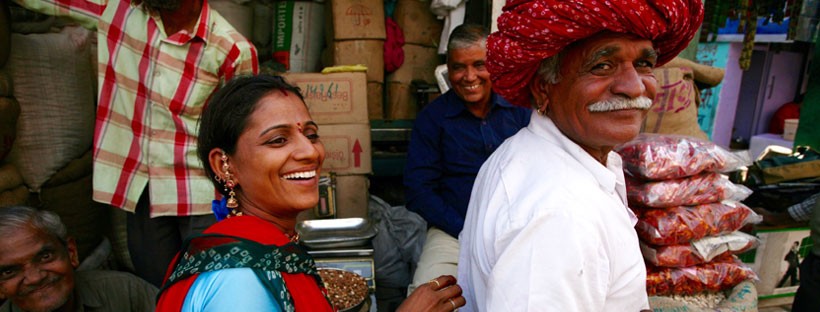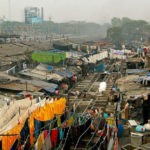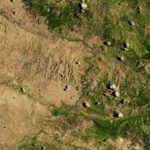Hear four heartwarming travel stories we’ve heard over the years. If no. 2 doesn’t make you cry, you are probably a robot!
1. How a mother lost in travel chaos was found
Cancelled. Cancelled. Cancelled, begins Agnes Mwangale’s tale of travel. It was 6pm on 15th April 2010 and she had just arrived at Toronto airport. As she scanned the arrivals board, her stomach churned and she realised that everything would not be okay – despite the promise she had made her mother.
Volcanic ash from Iceland’s Eyjafjallajökull had shut down Europe’s airports for nearly a week, leaving thousands of passengers stranded across the globe. Among them was Agnes’s mother, Sophia Atila Kafu, who was stuck at Schiphol Airport in Amsterdam nearly 4,000 miles away.
This would hardly be notable were it not for the fact that Sophia was 64, had never been outside Kenya, never been on a plane, never been inside an airport, spoke no English (only Swahili and Luhya), carried only 25 euros and didn’t have a working mobile.
By the time Agnes realised something was amiss, Sophia had already been stranded at Schiphol for 19 hours. She had with her some emergency contact details but, so far, no call had been made or received.
Realising that her mother was unable to seek help, Agnes called the airline, KLM, to ask if they could search for her. The airline told her that there was too much chaos in the airport and that they would not be able to locate one particular person. After several hours, Agnes left the airport and holed up in a nearby hotel watching the news in a state of distress.
When the next morning there was still no news, Agnes called the Kenyan Embassy in The Hague and was put through to a Kenyan attaché who promised to drive down to Amsterdam the next morning if Sophia was not found by evening.
Unable to rest, Agnes contacted her friends and her colleagues at AIDS-Free World to ask for help. Soon, there were people from Boston, Toronto, New York and San Francisco working on a solution. By now, Sophia had been stranded for nearly 40 hours.
One of Agnes’s friends, Paula Donovan, sent an email to her contacts titled “Urgently need your networking help!” It pleaded: “Do you know anyone who’s stranded in Amsterdam, or know anyone who knows anyone who knows anyone whose Facebook friends or Twitter followers might be there?”
This email landed in the inbox of an AIDS-Free World employee in San Francisco. Within minutes it had reached a lawyer in Washington who sent it to another lawyer in the same firm who then sent it to his father. It subsequently travelled to a senior executive at Delta Airlines (a KLM partner), and then to another Delta executive in Atlanta.
Within two hours, the email pinged into the inbox of George Bougias, Delta’s regional manager for customer service, as he was dining with his wife. At first, he wondered if it was a prank so called the number to check for sure.
Agnes answered the call and desperately assured him that her plight was real. She sent him photos of Sophia and, a few minutes later, George was on his way to the airport. He and six security agents began to search the terminals, soon joined by a Jacqueline Wittebrood who had received the message from a friend in New York, and her friend Fezekile Kuzwayo who could speak Swahili. Together, they combed the terminals.
It was nearing midnight and the team had almost finished their search when they noticed two lone figures in an isolated area near the airport casino. They walked over and lifted a blanket. Underneath was an African woman but at around 40 years old she was too young to be Sophia. The party turned to the second cot and peered beneath the blanket.
“Mama Sophia?” asked Fezekile. Then, in Swahili: “We’ve been sent here by your daughter.”
Sophia smiled, revealing a gap in her teeth, just like the one in her photos. Mama Sophia had finally been found. Shaken but relieved, she explained that the other woman, a Congo native who spoke English, had taken care of her. They had tried to call Agnes but hadn’t been able to reach her number.
Four days later, Sophia arrived in Canada in time for Agnes’s college graduation. Surprisingly, the experience left her more positive about flying. Harrowing as it was, the kindness of strangers taught her an important lesson: “You might have a problem,” she said. “But as long as other people know it, it’s not only yours anymore.”
Adapted from the original story in The New York Times
2. Fight for flight
“Last night, my husband and I got the tragic news that our three-year-old grandson in Denver had been murdered by our daughter’s live-in boyfriend,” started Nancy’s letter to elliott.org.
“He is being taken off life support tonight at 9 o’clock and his parents have opted for organ donation, which will take place immediately. Over 25 people will receive his gift tonight and many lives will be saved.”
Soon after this dreadful news, Nancy booked tickets for her husband, Mark, to fly from LA to Tucson to Denver. “The ticketing agent was holding back tears throughout the call,” Nancy wrote in the letter. “I’m actually her step-mother and it’s much more important for my husband to be there than for me to be there.”
Alas, the journey did not go as planned. Mark arrived at LAX two hours before the flight but soon realised that extreme delays at check-in and baggage were going to keep him from the flight.
Nancy’s letter describes how he was on the verge of tears as he pleaded with TSA (Transportation Security Administration) and Southwest Airlines to fast-track him. He explained that if he missed this flight, he would never see his grandson again – but no-one cared enough to help.
Finally clearing security a few minutes past the plane’s planned departure, he grabbed his luggage and, still in his socks, ran to his gate in hopeful desperation. As he rounded the corner, he spotted the gate agent. It was now 12 minutes pass departure time, but next to the agent stood the plane’s pilot.
“Are you Mark?” he asked. “We held the plane for you and we’re so sorry about the loss of your grandson.”
Breathless and close to tears, Mark broke down with gratitude.
The pilot calmed him. “They can’t go anywhere without me and I wasn’t going anywhere without you. Now relax. We’ll get you there. And again, I’m so sorry.”
3. An epiphany on the bus
“I was sitting in the back of a bus in a small village in Costa Rica called Watsi,” begins Chase Adam’s story.
“A woman in tattered clothing was standing in the aisle in front. She was holding a red folder and speaking to the passengers near her. I thought she must be selling stickers or skin creams.
A few minutes later I looked up and found she was making her way down the aisle toward me. She was holding a plastic bag, and although she had only passed a few passengers, the bag was bursting with money. I couldn’t believe it. In my year and a half in the Peace Corps, I had never seen a bus salesperson earn so much.
When she reached me, I still had no idea what she was selling. Then the man next to me asked to see the red folder she was holding.
The instant she opened the folder everything came together. There was a photograph on one side and a document on the other. The photograph showed a young boy with an incision across the width of his stomach. The document described his medical condition. The young boy was her son.
In that moment I had what can only be described as an epiphany. If I could somehow connect this woman with my friends and family back home, she would have the money to pay for her son’s medical treatment within the day.”
That moment was the genesis of Watsi, now a global crowdfunding platform that enables anyone to donate as little as $5 to directly fund life-changing healthcare for people in need.
To qualify for Watsi funding, patients must be afflicted with a condition that, if left untreated, will severely impact their standard of living. Treatments eligible for Watsi funding cost less than $1,500 USD, have a high probability of success, and are financially out-of-reach for the patient in need.
In short, Watsi treatments are low-cost and high-impact. And the best thing is: there are tangible results. When a patient has a successful operation, all their donors receive an update about it, clearly demonstrating the difference being made and unparalleled in terms of feel-good factor.
To date, 7,686 people have funded healthcare for 2,572 patients in 20 countries – and all because Chase happened to be travelling through a small Costa Rican town called Watsi.
4. The man in seat 16C
All frequent travellers have felt the dread of being sat next to a child. You silently hope that it won’t spend the flight screaming. You hope that its parents know how to control it. You hope you will get some peace and silence.
Now imagine that you’re the parent and you know that your child will scream and fidget and disturb others’ peace and silence – not because you can’t control her but because she has autism. Imagine that you’re silently praying for a kindly old woman or a fellow parent that might understand.
And then imagine that, instead, you get an important-looking businessman with a suit and a briefcase and a fistful of documents. Imagine the quiet dread as your daughter reaches over and strokes his arm, calls him “Daddy” and won’t stop doing it.
This is what happened to Shanell on a flight with her 3-year-old daughter, Kate, but as she writes on her blog, the passenger’s reaction wasn’t as expected:
“You could have shifted uncomfortably in your seat. You could have ignored her. You could have given me that ‘smile’ that I despise because it means ‘manage your child please’. You did none of that. You engaged Kate in conversation and you asked her questions about her turtles … I watched and smiled. I made a few polite offers to distract her, but you would have none of it.”
Shanell goes on to describe how her daughter refused to let the man rest. “The interaction went on and on and you never once seemed annoyed.”
It got worse: “Not long before we landed, Kate had reached her limit. She screamed to have her seatbelt off, she screamed for me to open the plane door and she cried, repeating, ‘Plane is closed’ over and over. You tried to redirect her attention to her toys. She was already too far gone at this point, but the fact that you tried to help made me emotional.”
Shanell continues: “In case you are wondering, she was fine the moment we stepped off the plane. Thank you for letting us go ahead of you. Kate was feeling overwhelmed and escaping the plane and a big, long hug was all she needed. So, thank you.
Thank you for not making me repeat those awful apologetic sentences that I so often say in public. Thank you for entertaining Kate so much that she had her most successful plane ride, yet. And, thank you for putting your papers away and playing turtles with our girl.”
I know the smile that Shanell speaks of – the one that says ‘manage your child please’ – for I have flashed it at parents before. I have felt impatience and annoyance bubble inside, but I hope that the next time I’m in this type of situation, I’ll act with the same grace and understanding as the man in seat 16C.
4.5 The sweeter side of Reddit
I scoured Reddit and Google for this story but couldn’t find it, so I’ll just have to give you a three-line summary from memory. When a devastating earthquake hit Japan in 2011, a Redditor posted that his mother was stuck in a Japanese province without access to food or drink.
Another Redditor read the post. He was in Japan and so put together a big parcel of food, navigated all the way to the mother’s town and knocked on her door to give her the parcel.
It was super heartwarming and sweet (words not often associated with the Reddit community), but I’m afraid I can’t the find the link so this is only half the story. If you find it, please let me know!










